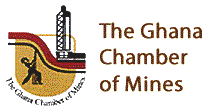The Ghana Chamber of Mines has expressed profound sorrow and grief over the tragic deaths of two serving cabinet ministers and six others in a helicopter crash that has sent shockwaves through the nation.
The ill-fated delegation was en route to Obuasi for the launch of the Responsible Cooperative Mining and Skills Development Programme (rCOMSDEP), a flagship initiative aimed at promoting sustainable mining practices and curbing illegal activities in the sector.
In a solemn statement, the Chamber described the incident as an immense national tragedy, noting that the deceased had dedicated themselves to the service of Ghana and paid the ultimate price while on official duty.
“Their untimely demise represents a significant loss to Ghana.
“Each one of them was a committed public servant who made invaluable contributions to national development, paying the ultimate price in the line of duty.”
Ghana Chamber of Mines
Among those who perished were Defence Minister Dr. Edward Kofi Omane-Boamah and Environment Minister Dr. Ibrahim Murtala Mohammed.

Their roles in leading efforts to combat illegal mining and protect Ghana’s environment were singled out by the Chamber as pivotal to the country’s resource governance progress.
The Chamber of Mines noted that both ministers had been instrumental in crafting and enforcing policies to enhance the security of Ghana’s licensed mining concessions and safeguard critical water bodies from environmental degradation caused by illegal mining.
The Chamber stated, “Their leadership and collaboration were foundational to the multi-stakeholder approach adopted to mitigate the impacts of illegal mining,” stressing that their absence leaves a significant void in the nation’s ongoing mining sector reforms.
Also confirmed dead were Alhaji Muniru Mohammed Limuna, a former Minister for Food and Agriculture and acting Deputy National Security Coordinator, and Dr. Samuel Sarpong, Vice Chair of the opposition National Democratic Congress.
The crash additionally claimed the lives of Mr. Samuel Aboagye, a former parliamentary candidate, and three military personnel: Squadron Leader Peter Anala, Flying Officer Twum Ampadu, and Sergeant Ernest Addo.
Mining Tragedy Fallout

The tragedy is not only a blow to the families of the deceased but also casts a shadow over Ghana’s anti-illegal mining agenda, a key pillar of government policy in recent years.
Analysts have begun to raise questions about the safety and security protocols surrounding the movement of high-ranking officials, particularly in volatile and high-risk zones like illegal mining areas.
For the Ghana Chamber of Mines, the personal and professional ties with the deceased ministers were both significant and impactful.
The organisation worked closely with the Ministry of Lands and Natural Resources, as well as the Ministries of Defence and Environment, on a range of initiatives including rCOMSDEP, which the group described as a transformative programme aimed at providing skills training and responsible mining alternatives to small-scale miners.
“Their passing is a major setback for the collaborative efforts we have been building with government to promote environmental stewardship and responsible mining in Ghana.”
Ghana Chamber of Mines
As the country grapples with the shock of the tragedy, the Chamber called for unity and reflection.
“We stand in solidarity with the bereaved families and the Government of Ghana at this time of profound grief.”
Ghana Chamber of Mines

Ghana, Africa’s top gold producer, has over the past decade battled with the twin challenges of maintaining investor confidence in its extractive sector while addressing the socio-environmental consequences of unregulated mining.
The implementation of rCOMSDEP was seen as a major step in harmonising these objectives, with a focus on formalising small-scale mining operations and reducing their negative environmental footprint.
The fatal crash is expected to deepen national reflection on the sustainability and governance of the mining sector, as well as the safety measures in place for public servants operating in high-stakes environments.
With global demand for responsibly sourced minerals intensifying, Ghana’s ability to project stability, transparency, and sustainability in its mining sector is now more important than ever.
The loss of senior leaders who were central to this effort introduces a new layer of complexity that the government and its partners will need to navigate carefully in the months ahead.
As the nation mourns, the Chamber reiterated its call for continued partnership among stakeholders to ensure that the vision and legacy of the deceased are carried forward.
READ ALSO: IMF Urges BoG to Hold Tight on Policy Rate to Cement Disinflation Gains



















